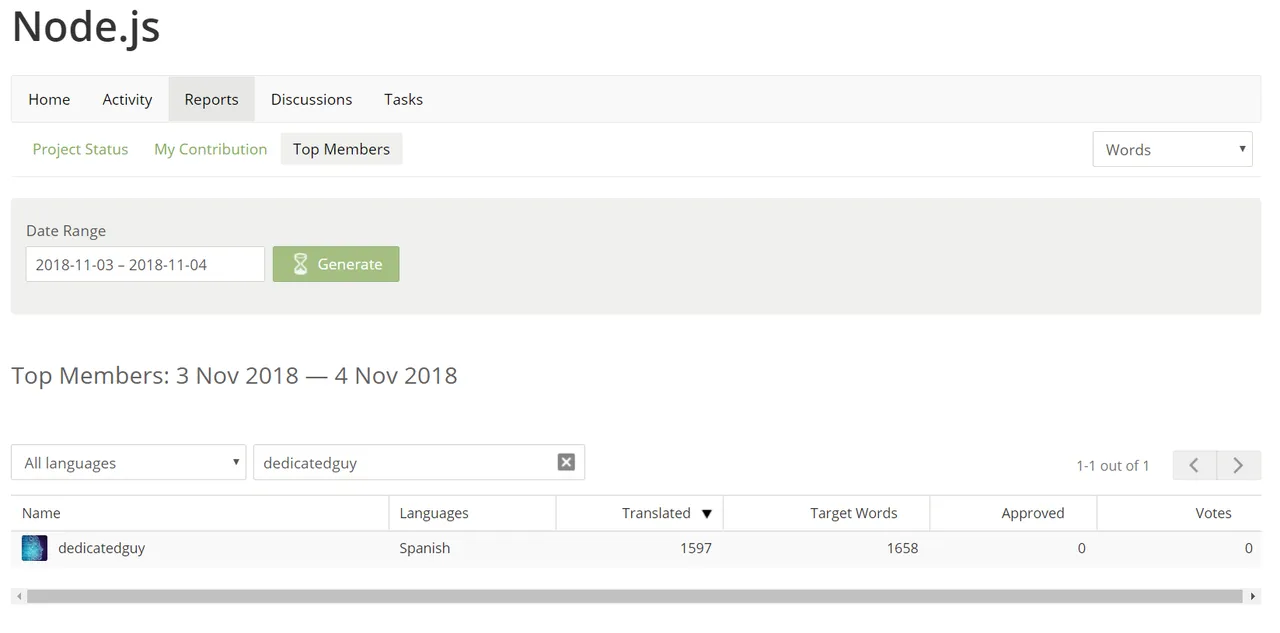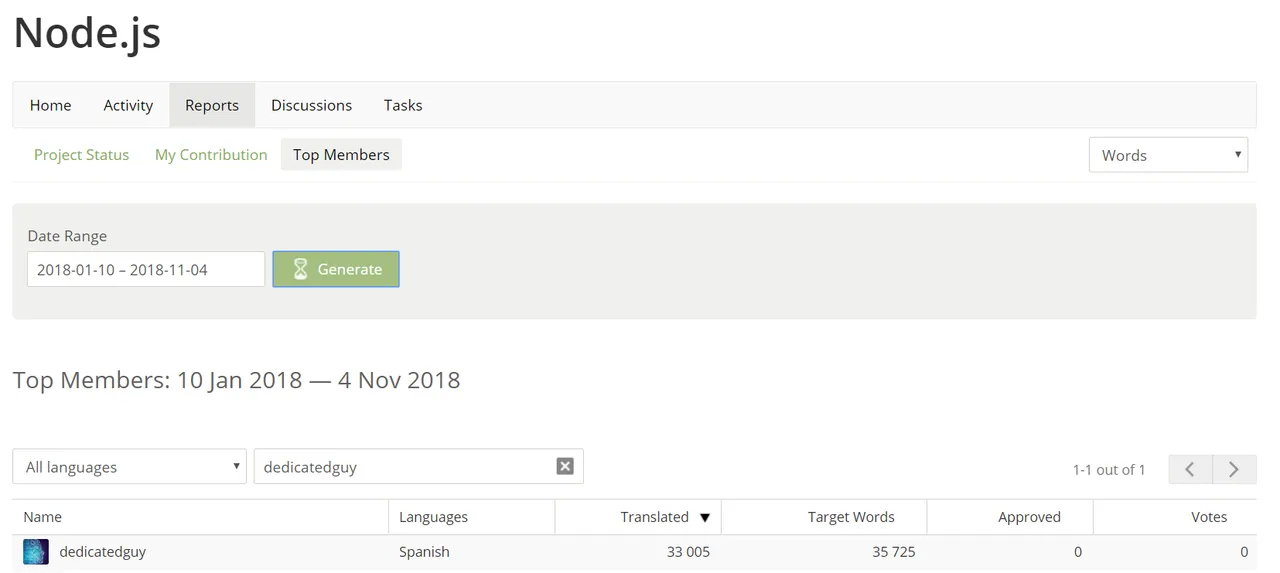
Repository
https://github.com/nodejs/i18n
Project Details
Node.js is an open-source, cross-platform JavaScript run-time environment that executes JavaScript code outside of a browser... Node.js allows the creation of Web servers and networking tools using JavaScript and a collection of "modules" that handle various core functionality... Node.js represents a "JavaScript everywhere" paradigm, unifying web application development around a single programming language, rather than different languages for server side and client side scripts. | Source
In simple words, this project brings value to the open source community because it facilitates the creation of all sort of applications using JavaScript, and provides a lot of help and versatility to developers, so much so that well-known companies like Netflix, Paypal, and Uber (among many others) use Node for their online services.
Since Node.js is very easy to learn and it provides a lot of benefits for developers, there is a huge community of people involved with it, which is one of the reasons why this project is available to be translated into several languages (in crowdin, one of the best translation platforms in the web, this project is available to be translated into 33 different languages, Spanish being the one corresponding to this contribution), the ultimate goal in translating Node.js is to make it easier for developers from any country to start learning about this project in their own native language.
If you want to know more about Node.js feel free to visit its website.
Contribution Specifications
- Translation Overview
This is my #30 contribution to Node.js, and after this contribution, this project is 28% completed for the Spanish team, the folder I have been translating, CHANGELOG_V6.md, is currently 53% completed, that is a 3% increase from my previous contribution.
In this contribution, every single one of the translated strings belonged to the version 6.9.3, which makes this version one of the longest one in the whole folder. Since I had already translated the introductory paragraphs of this version, today’s strings were all commits, formatted as pull-requests, which means, all strings were very concise with shorts instructions regarding changes that needed to be applied to Node.js.
This type of strings always starts with the link to the github’s commit, then the instruction usually begins with an imperative verb, sometimes there are technical terms referring to internal Node.js elements or some abbreviations, and finally there is the name of the person who wrote this instruction with the link of the merged pull-request as the final piece of information.
Sometimes, it is required to do a little research about the technical terms included in the strings to make sure the translation is as precise as it can be, below I added a few examples of the translated strings.
English
update tls test to use const/let and common.mustCall
Spanish
actualizar prueba de tls para usar const/let y common.mustCall
English
Added more validations to setEncoding
Spanish
Se añadieron más validaciones a setEncoding
English
fix buffer alloc tests
Spanish
arreglar pruebas de asignación de buffer
When working on this contribution I was able to learn the following concepts:
- Transport Layer Security (tls): this is a cryptographic protocol that allows applications to securely communicate with each other over a given network, this protocol is even used by specialized privacy services like VPNs. Right now, it is the best security protocol there is for exchanging online data, so any project or development team that wants to be on top of any innovation regarding online security, should be using tls instead of the almost obsolete ssl.
- Dotfiles: these are common configuration files for UNIX that have information regarding the settings of pretty much every program there is in the system. They are called “dotfiles” because they have a dot “.” at the beginning of their name that allows them to remain hidden. This way, they can only be listed when specifically requested for technical purposes.
In the previous contributions, I included the definition of these terms: deprecation, I/O - input/output, callback, asynchrony, POSIX, parsing, path, wildcard, wrapper function, stack trace, floating point value, error-first callbacks, transpilation tool, root certificate, little-endian, DNS rebinding, same-origin-policy, keep-alive behavior, stringification, arrow function, salt (cryptography), semver, lint, fixtures modules, newline, backporting, shell command, ES6 Classes , code refactoring, segfault, tarball, benchmark, type-check, deflate, char, aix, spawn, rehash, noop, rebasing, continuous integration, linkify, segfaults, IPC, libuv, toolchain, punycode, symlink, base64, interprocess communication (IPC), application binary interface (ABI), read–Eval–Print Loop (REPL), advanced Interactive eXecutive (AIX), GYP, Opaque binary blob (obb), symbolic link, and destructuring.
- Languages
Source language: English
Translated language: Spanish
I have made several contributions in the past, and I published a series of articles in both languages. I am also part of the Utopian + DaVinci Spanish team.
- Word Count
Due to the fact there were several strings with the same term being used over and over again, to compensate this, I translated more words than usual.
Part 30: 1597 words

Total: 33005 words
